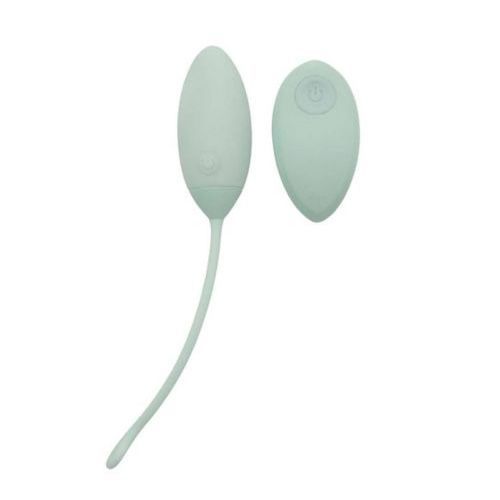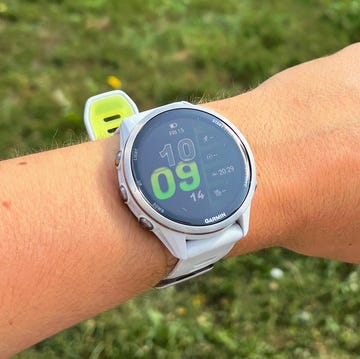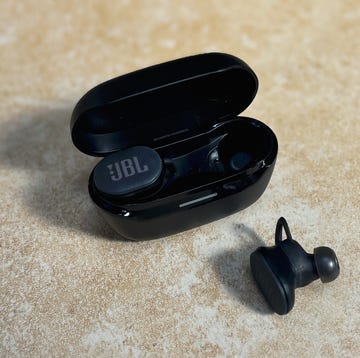We earn a commission for products purchased through some links in this article.
8 of the best pelvic floor trainers for runners
Our pick of the best pelvic tech to prevent you leaking on the run

The majority of runners will have found themselves caught short at some point or another, whether it's a mid-race dash to a portaloo from a sports gel that didn't sit right, or a hurried training run home. But if you find yourself frequently leaking when you run, it might be a sign that you need to invest in a pelvic floor trainer.
While pelvic floor weakness is something a lot of people associate with new mums, a functional pelvic floor is important to all of us, including men and women who have never given birth.
'Pelvic floor strength is crucial for runners because it plays a significant role in providing stability and support to the lower abdominal organs, including the bladder, uterus and rectum,' says Sarah Mulindwa, sex and sexual health expert at Lovehoney.
'When you run, the impact and repetitive motion put stress on the pelvic floor muscles, and having strong pelvic floor muscles can help prevent various issues and improve overall running performance.
What is the best pelvic floor trainer?
Ready to start working that floor? Here’s our pick of the best pelvic floor trainers, at a glance. Keep scrolling to read more.
Can running weaken the pelvic floor?
According to Mulindwa, there are a few ways that running can potentially weaken the pelvic floor.
High-impact exercise: Running involves repetitive impact on the pelvic floor, which can strain the muscles if they are not strong enough to withstand the pressure.
Inadequate pelvic floor strength: If the pelvic floor muscles are already weak or compromised, running can exacerbate the issue. Regular pelvic floor exercises are important in both preventing and reversing any damage.
Incorrect form: Poor running form can lead to improper alignment and increased pressure on the pelvic floor muscles.
Why is pelvic floor strength important?
When it comes to running specifically, a strong pelvic floor is crucial for a number of reasons.
'The pelvic floor is an essential part of the core musculature,' explains Mulindwa. 'A strong core, including the pelvic floor, provides stability and balance while running, leading to improved running form and reduced risk of injuries.'
Weak pelvic floor muscles can contribute to lower back pain during running, so strengthening the pelvic floor can alleviate this discomfort and enhance overall spinal stability.
'A strong and stable pelvic floor can translate into improved running performance by allowing the muscles to work more efficiently, optimising stride length, and reducing energy wastage,' adds Mulindwa.
To maintain or improve pelvic floor strength, you can incorporate specific pelvic floor exercises, such as kegel balls, into your regular training routine. It's also essential to pay attention to any signs of pelvic floor dysfunction and seek professional guidance if needed, says Mulindwa.
'Additionally, overall core strength and stability training, along with proper running mechanics and appropriate warm-up and cool-down routines, can further support the pelvic floor and contribute to better running performance and overall wellbeing.'
Types of pelvic floor trainer
Pelvic floor trainers range from basic to advanced, with variations in price. There are generally three main types:
Kegel balls: Small, weighted balls that are pushed inside the vagina. They come in several weights and sizes, with the idea being you find one that you’re comfortable with and progress to a heavier weight as you build strength. Most kegel balls require you to do the squeezing and relaxing yourself, but some (like the My Viv kegel trainer below) come with a handheld remote and do the work for you.
Electrical stimulation: This type of device is often recommended for people with a very weak pelvic floor, who struggle to do the squeezing themselves. It produces a painless electrical current which stimulates the muscles to contract and relax.
Biofeedback: The gold standard of pelvic floor training. These devices are able to detect the direction of your pelvic floor contractions and provide personalised feedback to help you perform the exercises correctly. The more premium options even come with integrated apps and gamified exercises to enhance your motivation.
Do pelvic floor trainers work?
Pelvic floor trainers can be effective for many people when used correctly and consistently, says Mulindwa. 'They work by providing resistance to help you target and exercise the pelvic floor muscles, but they can also help individuals become more aware of their pelvic floor muscles and how to control them.'
The frequency and duration of using a pelvic floor trainer can vary depending on individual needs and recommendations from healthcare professionals.
If you are new to pelvic floor exercises or trainers, start slowly and gradually increase the intensity and duration of your workouts, says Mulindwa. 'To see meaningful results, consistency is essential. Aim to incorporate pelvic floor training into your daily routine, but be mindful of not overdoing it. A few sessions per week may be sufficient for some individuals, while others may benefit from daily exercises.'
In the beginning, a session of five to 10 minutes can be adequate, she adds. As your pelvic floor muscles strengthen and you become more comfortable with the exercises, you can extend the duration to 15 to 20 minutes per session.
While using a pelvic floor trainer is effective, it's also beneficial to incorporate other pelvic floor exercises into your routine, such as traditional kegel exercises or yoga poses that target the pelvic region.
Finally, be patient, says Mulindwa. 'Strengthening the pelvic floor muscles takes time, and results may not be immediate. Be patient and consistent with your training, and you should see improvements over time.'
8 best pelvic floor trainers for runners
Here's our pick of the best devices to strengthen your pelvic floor and prevent mid-run leakage. However, it's important to note that while pelvic floor trainers can be effective, they may not be suitable for everyone or for all conditions. Before using a pelvic floor trainer, it's advisable to consult with a healthcare professional, especially if you have any existing medical conditions or concerns.


The best cheap running headphones under £70

The 9 best lights for running in the dark
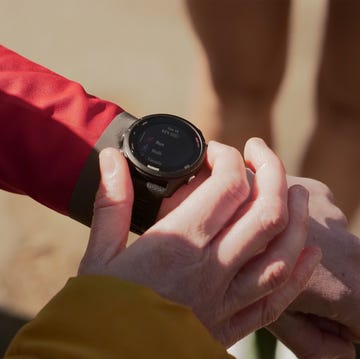
7 best cheap running watches for under £250
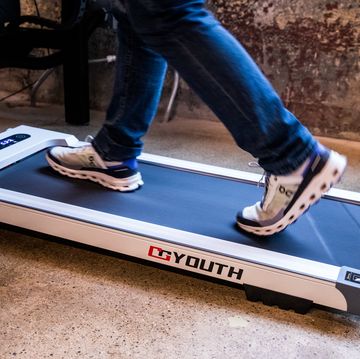
The best walking pads for your home office





